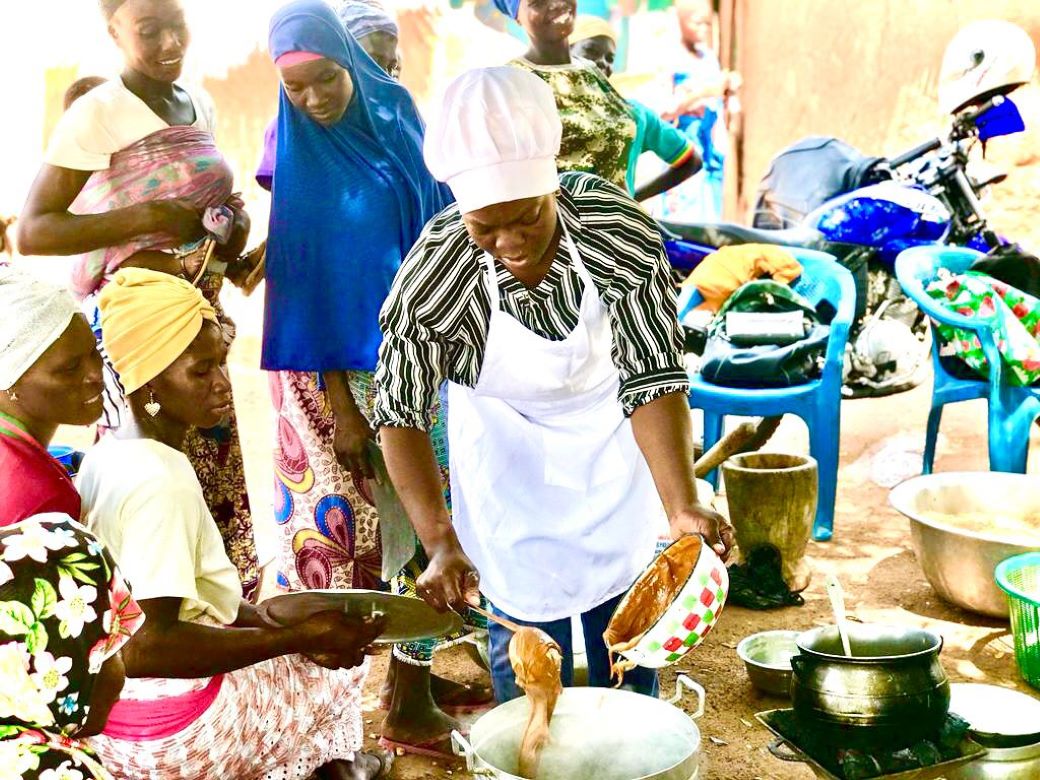Aside from enabling women farmers under the GROW2 project with innovative and climate-smart skills to boost farm yields, the projects encourage women to utilize their farm produce through agribusiness to ensure economic stability and freedom. Other vital components of the project, besides providing farm inputs, technologies, farm demonstrations, and skills, seek to ensure that clients can utilize their produce in ways that promote nutritional health, hence the recent food processing and utilization demonstration.
Over the past weeks, project officers under the GROW2 project have undergone a series of trainings on how to incorporate soybeans and groundnuts, two of the most cultivated foods by women farmers, into various everyday meals to enhance nutrition. These trainings, which took place in the Northern and Savannah regions, were necessary considering the level of malnutrition and food insecurity cases within some rural areas of the region.
This training was meant to educate these officers on the skills needed for this activity, which was meant to trickle down to their areas of operation. After this training, community-level training will be held across all Urbanet’s zones of influence, led by the project officers with assistance from WIAD officers. This activity will involve all women in these communities who are clients of the project and will take them through a step-by-step process on how to incorporate groundnuts and soybeans into their household dishes and how to prepare other nutritional dishes to combat malnutrition and promote food security through proper utilisation of foodstuffs.
During the food demonstrations, the women will be educated on the nutritional value of soybeans and groundnuts and how they can be used as replacements for other sources of nutrients that are not readily accessible to them due to financial constraints. They will also be taken through the significance of prioritizing nutritional well-being, especially for their children, and how to ensure constant practice to elevate their health status.

